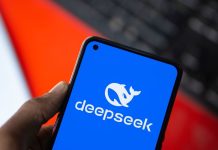By Mostafa Sayyadi and Michael J. Provitera
Today, we face countless opportunities and threats from knowledge management in the era of artificial intelligence. Taking advantage of these opportunities and avoiding the growing threats requires adopting a new form of strategy. This new strategy considers rationale as the most important pillar of corporate success. We call this new strategy “Generative AI Knowledge Strategy”.
Knowledge being the biggest commodity among corporations in the AI era has people wondering why large corporate financial investments sometimes go off track. [1] [2] [3] [4] Some companies fail to successfully implement projects. One of the most prominent examples of these companies is Nokia, which failed to implement enterprise knowledge management projects. This failure has roots in a lack of a generative AI knowledge strategy in these companies. Generative AI knowledge strategy builds a company around a person with a vision coupled with sheer insight from a powerful team of innovators and creators. It is a creation of coordination among different parts of the organization to achieve synergy. Coordination leads to focus to prioritize the distribution of companies’ resources to achieve their mission and vision. Over the past twenty years, we have experienced that companies often fail to make the connection between their strategy and organizational knowledge management. A fatal flaw.
When a company lacks a generative AI knowledge strategy, a series of scattered and sometimes contradictory actions impact investments. [5] [6] [7] The coherence of actions and processes faces inertia and a lack of focus on the future. This scattered array of contradictory actions hinders an organization from creating innovative knowledge and solutions to solve its problems. The lack of a generative AI knowledge strategy will prevent the creation of an innovative system and ultimately lead to the inability of the company to solve its problems. This lack of systemic thinking focuses on the components of the organization on different and contradictory priorities, which in turn prevent the organization from focusing on the most profitable priorities.
“Inertia causes organizations to imitate other systems that are not producing results. The solution is to design a unique system for your company that is compatible with your internal capabilities and competitive needs — Generative AI Knowledge Strategy.”
Barring the negative exposure that Elon Musk has placed at the forefront of social media, he may be developing a marketing and publicity campaign that incorporates a generative AI knowledge strategy. Letting potential buyers feel that orders for Tesla electric cars may be halted inflates demand. Tesla, a leading manufacturer of electric cars, uses a generative AI knowledge strategy to give customers less time to search for information. One of the best examples of a vendor car purchasing engine is that provides customers with the required information by implementing a generative AI knowledge strategy from the onset of a $250 deposit. The Tesla family initiative considers customers as part of the extended Tesla family. The company has also succeeded in creating a learning environment by using a generative AI knowledge strategy, which continuously empowers and updates its customers and human resources in the AI era while making every operator a salesperson without commission.
When viewed from a generative AI knowledge strategy perspective, Tesla’s performance makes perfect sense. By providing specific and effective solutions for uncertain and ambiguous situations. The cutting-edge customer orientation offers well-defined and rational solutions using its organizational capabilities to meet customer needs with vendor-style operations. The marketing-oriented effect of customer relations provides after-sales service to keep customers informed of their latest products through software updates. By maintaining constant communication with existing customers and attracting new customers with a $25,000 sticker price, the company will improve diversity and open its footprint to the lives of millions of customers. By understanding its capabilities, and recognizing customers as well as their interests, Tesla has developed the most effective generative AI knowledge strategy.
The Best Strategy for Knowledge Management in the AI age
About fifteen years ago, Apple decided to make a strategic change by understanding the future needs of customers. The company decided to use its technological capability to produce smartphones. This strategic decision required a new strategy coupled with the effectiveness of organizational knowledge management.
“The first step in developing a generative AI knowledge strategy is a measurable and accurate definition of the company’s goals.”
In the AI age, generative AI knowledge strategy plays a very important role in developing better and more reliable products and services, and better after-sales service to customers. [8] [9] [10] [11] A vital role in attracting new customers. Tesla, for example, is making continuous efforts to optimize its supply chain, produce more innovative products and services, and develop software and internet capabilities to improve customer relationships. Indeed, hardware and software integration has been developed as effectively as possible to attract potential customers.
Applying a generative AI knowledge strategy and attracting potential customers will motivate your competitors to emulate your services and products. There are many examples of companies that have created very strong competitors. Samsung captured the Apple business model knowledge by emulating the products and enhancing them. Once acquired, engineers can take a product apart and enhance it when they put it back together with a generative AI knowledge strategy.
In the AI era, the best solution for new product and service providers is to maintain a constant effort and investment to optimize new products and services. Ensuring a proper ecosystem and a continuous supply chain can also be important. Ignoring the importance of continuous improvement can quickly put a leading company behind its competitors. Some of the predictions that Tesla rivals pose, such as Toyota, are bridging the gap with this leading company in the electric automobile sector which is a clear example of this vital role.
“James Morris, in a 2021 Forbes article posited that Tesla’s Dominance Could Be Under Threat Sooner Than You -Think.”
Generative AI knowledge strategy can enhance competitive advantage. Four pillars can build the foundation for corporate success. Analysis Strategy is based on market analysis and technological competencies. [12] An example of such a strategy can be seen in leading technology companies such as Microsoft, which played an important role in gaining a large market share and taking on the leading role in the industry with the introduction of Windows. Pro-activeness Strategy is a strategy based on emerging market trends to respond effectively to new technology. [13] [14] [15] [16] An example of such a strategy in digital photography can be seen by Kodak, which, with the production of this new product, outperformed competitors. Defensiveness Strategy is the opposite of pro-activeness strategy. [17] The main challenge here is the financial challenge. While maintaining the quality of its products and services, an organization uses the best ideas to reduce costs. An example of such a strategy can be seen in Kodak digital camera, which greatly reduced photography costs by preventing waste disposal. Futurity Strategy combines long-term effectiveness with short-term efficiency. [18] In this way, it plays an important role in continuously improving the agility of the organization. Costco offers a one-stop-shop for products about expire yet fly off the shelf.
In the AI disruption era, generative AI knowledge strategy plays a decisive role in using these four strategies. Optimization strategy plays the most important role in creating a competitive advantage. The growing position of the Chinese tech giant, Huawei, realizes the importance of this strategy. The point is not that companies should just use an optimization strategy. Rather, the important point is that companies, depending on the situation in which they are, should use one or more of these strategies and constantly analyze their position to replace and reformulate these strategies when necessary or use an interchanging combination. There is no exact formula for success and careful analysis of the opportunities and threats is essential.
In Conclusion
In the AI era, a generative AI knowledge strategy can overcome obstacles as it effectively prioritizes resources to achieve strategic goals. Leaders must determine whether they want to focus on emerging needs or market trends. Prioritizing and proactive decision-making can help overcome obstacles. Implementing knowledge management is based on a strategy to achieve ultimate goals. Using a system approach will enhance the accomplishment of goals and objectives. Questions to pinpoint success must be answered. “How does a generative AI knowledge strategy lead to attracting potential customers?” “How will the generative AI knowledge strategy maintain current customers and delight them?” The ultimate challenge is to continually improve their generative AI knowledge strategy. Adapting to current events will also increase success. With changes in the external environment and laws and regulations, the generative AI knowledge strategy must also be constantly improved to adapt to its external environment.
About the Authors
 Mostafa Sayyadi works with senior business leaders to effectively develop innovation in companies and helps companies—from start-ups to the Fortune 100—succeed by improving the effectiveness of their leaders.
Mostafa Sayyadi works with senior business leaders to effectively develop innovation in companies and helps companies—from start-ups to the Fortune 100—succeed by improving the effectiveness of their leaders.
 Michael J. Provitera is a senior faculty professor of Management and Leadership, in the Andreas School of Business at Barry University, Miami, Florida, USA . He is an author of Level Up Leadership: Engaging Leaders for Success, published by Business Expert Press.
Michael J. Provitera is a senior faculty professor of Management and Leadership, in the Andreas School of Business at Barry University, Miami, Florida, USA . He is an author of Level Up Leadership: Engaging Leaders for Success, published by Business Expert Press.
References
- Zhao, J., Gómez Fariñas, B. Artificial Intelligence and Sustainable Decisions. Eur Bus Org Law Rev 24, 1–39 (2023). https://doi.org/10.1007/s40804-022-00262-2
- Verdegem, P. Dismantling AI capitalism: the commons as an alternative to the power concentration of Big Tech. AI & Soc (2022). https://doi.org/10.1007/s00146-022-01437-8
- Deranty, JP., Corbin, T. Artificial intelligence and work: a critical review of recent research from the social sciences. AI & Soc (2022). https://doi.org/10.1007/s00146-022-01496-x
- Tsyganov, V. Artificial intelligence, public control, and supply of a vital commodity like COVID-19 vaccine. AI & Soc 38, 2619–2628 (2023). https://doi.org/10.1007/s00146-021-01293-y
- Janicot, C., Mignon, S. Knowledge codification in audit and consulting firms: a conceptual and empirical approach. Knowl Manage Res Pract 10, 4–15 (2012). https://doi.org/10.1057/kmrp.2011.38
- Drewniak, R., Karaszewski, R. Diffusion of knowledge in strategic alliance: empirical evidence. Int Entrep Manag J 16, 387–416 (2020). https://doi.org/10.1007/s11365-019-00589-2
- Pütz, L., Schell, S. & Werner, A. Openness to knowledge: does corporate social responsibility mediate the relationship between familiness and absorptive capacity?. Small Bus Econ 60, 1449–1482 (2023). https://doi.org/10.1007/s11187-022-00671-0
- Huang, L., Peissl, W. (2023). Artificial Intelligence—A New Knowledge and Decision-Making Paradigm?. In: Hennen, L., Hahn, J., Ladikas, M., Lindner, R., Peissl, W., van Est, R. (eds) Technology Assessment in a Globalized World. Springer, Cham. https://doi.org/10.1007/978-3-031-10617-0_9
- Huang, MH., Rust, R.T. A strategic framework for artificial intelligence in marketing. J. of the Acad. Mark. Sci. 49, 30–50 (2021). https://doi.org/10.1007/s11747-020-00749-9
- Enholm, I.M., Papagiannidis, E., Mikalef, P. et al. Artificial Intelligence and Business Value: a Literature Review. Inf Syst Front 24, 1709–1734 (2022). https://doi.org/10.1007/s10796-021-10186-w
- Sarker, I.H. AI-Based Modeling: Techniques, Applications and Research Issues Towards Automation, Intelligent and Smart Systems. SN COMPUT. SCI. 3, 158 (2022). https://doi.org/10.1007/s42979-022-01043-x
- Pascucci, F., Savelli, E. & Gistri, G. How digital technologies reshape marketing: evidence from a qualitative investigation. Ital. J. Mark. 2023, 27–58 (2023). https://doi.org/10.1007/s43039-023-00063-6
- Anwar, M., Clauss, T. & Issah, W.B. Entrepreneurial orientation and new venture performance in emerging markets: the mediating role of opportunity recognition. Rev Manag Sci 16, 769–796 (2022). https://doi.org/10.1007/s11846-021-00457-w
- Linton, G. Innovativeness, risk-taking, and proactiveness in startups: a case study and conceptual development. J Glob Entrepr Res 9, 20 (2019). https://doi.org/10.1186/s40497-019-0147-5
- Meyer, K.E., Li, J., Brouthers, K.D. et al. International business in the digital age: Global strategies in a world of national institutions. J Int Bus Stud 54, 577–598 (2023). https://doi.org/10.1057/s41267-023-00618-x
- Vrontis, D., Belas, J., Thrassou, A. et al. Strategic agility, openness and performance: a mixed method comparative analysis of firms operating in developed and emerging markets. Rev Manag Sci 17, 1365–1398 (2023). https://doi.org/10.1007/s11846-022-00562-4
- Morgan, R.E., Strong, C.A. (2015). Competitive Strategy and Market Orientation: The Relationship and its Implications. In: Ford, J., Honeycutt, Jr., E. (eds) Proceedings of the 1998 Academy of Marketing Science (AMS) Annual Conference. Developments in Marketing Science: Proceedings of the Academy of Marketing Science. Springer, Cham. https://doi.org/10.1007/978-3-319-13084-2_53
- Adachi, Y., Usami, M. (2023). Introduction. In: Adachi, Y., Usami, M. (eds) Governance for a Sustainable Future. Springer, Singapore. https://doi.org/10.1007/978-981-99-4771-3_1





































